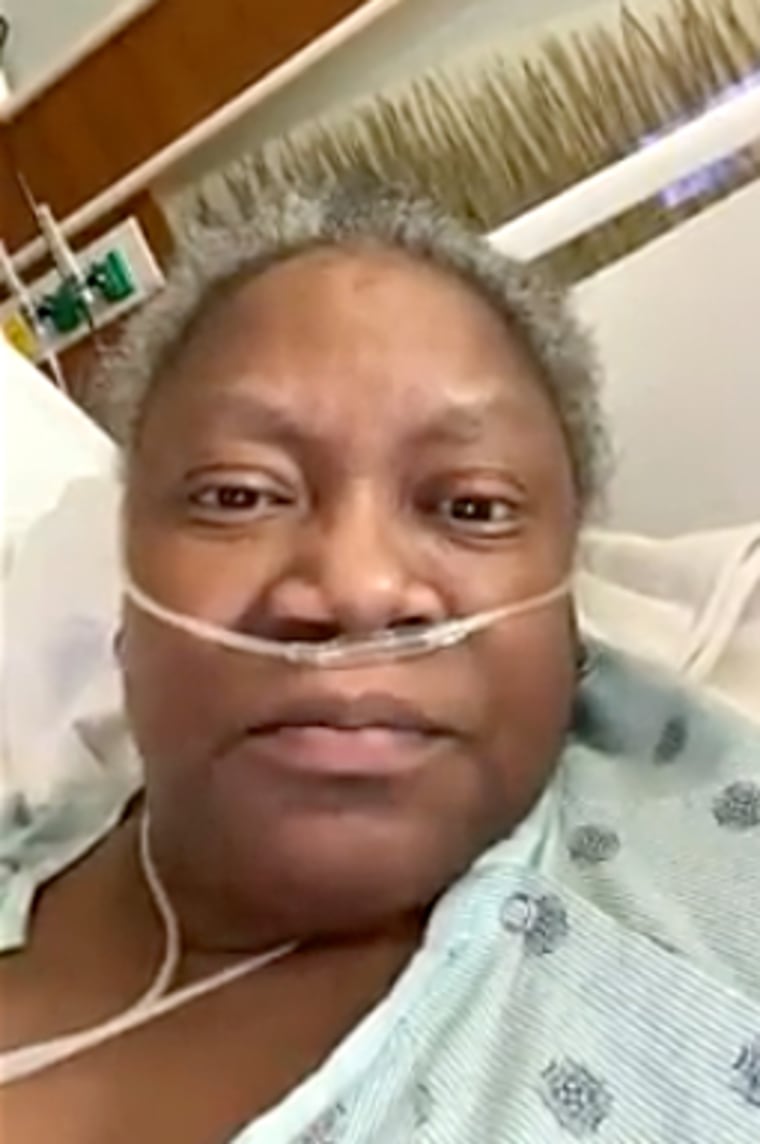The Covid-19 death this month of a Black physician who said she had to beg for proper medical care and was prematurely discharged from a hospital underscores the bias that Black people, particularly Black women, face in the U.S. health care system, numerous physicians and others said, expressing outrage.
The woman, Dr. Susan Moore, 52, of Indianapolis, said she tested positive for Covid-19 on Nov. 29 and was hospitalized at Indiana University Health North. She documented her tumultuous stay in a Dec. 4 Facebook post, which included video recorded from her hospital bed. The video, about 7 minutes long, detailed her complaints and dissatisfaction with how staff members were treating her, which she believed was because she was Black.

"You have to show proof that you have something wrong with you in order for you to get the medicine," Moore said in the impassioned video. "I put forth, and I maintain, that if I was white, I wouldn't have to go through that."
A number of her peers on social media agreed.
"These are the issues we face, as we give up so much to take care of patients, even in harm's way, and when we find ourselves as patients, we are disrespected, devalued & dismissed," Dr. Omolara Uwemedimo tweeted. "It cost Dr. Moore her life. Her medical degree did not save her from the racism that she endured while battling for her life."
In an opinion article published in The Washington Post, four advocates for racial justice in health care said Moore's death resulted from a biased system.
Full coverage of the coronavirus outbreak
"No matter how well-intentioned our health-care system is, it has not rooted out the false idea of a hierarchy of human valuation based on skin color and the falser idea that, if there were such a hierarchy, 'White' people would be at the top," said the piece by Dr. Aletha Maybank, chief health equity officer at the American Medical Association; Dr. Camara Phyllis Jones, a family physician and epidemiologist and past president of the American Public Health Association; Dr. Uché Blackstock, founder and CEO of Advancing Health Equity; and Dr. Joia Crear Perry, president of the National Birth Equity Collaborative.
Moore said that throughout her stay, her doctor was not receptive to her concerns and routinely downplayed her pain. Only after she underwent a CT scan, which allowed hospital personnel to see Moore's lungs for themselves, did the doctor agree to prescribe her the narcotics she needed, Moore said.
In the Facebook post, which she kept updated, Moore chronicled her discharge from the hospital, her return home and the worsening of her condition.
"I was home for less than 12 hours. Spiked a temperature of 103 and my blood pressure plummeted to 80/60 with a heart rate of 132," Moore wrote. "I'm back in the hospital, a different hospital Saint Vincent Carmel."
Moore said that she was diagnosed with pneumonia but that she was receiving "compassionate care" and the pain medication she needed at her new hospital.
Download the NBC News app for full coverage and alerts about the coronavirus outbreak
In her last update, Moore said she was being transferred to intensive care. She died Dec. 20, according to news reports.
A spokesperson for Indiana University Health North would not comment about Moore's allegations specifically but said, "We are very sad to hear of her passing," and shared the following statement on behalf of the hospital:
"IU North respects and upholds patient privacy and cannot comment on a specific patient, their medical history or conditions. As an organization committed to equity and reducing racial disparities in healthcare, we take accusations of discrimination very seriously and investigate every allegation. Treatment options are often agreed upon and reviewed by medical experts from a variety of specialties, and we stand by the commitment and expertise of our caregivers and the quality of care delivered to our patients every day."